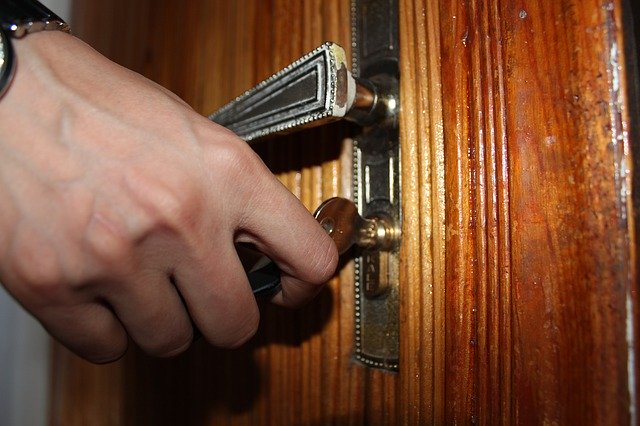
Knowledge is the basis on which the best home security decisions are made. This isn’t something to be taken lightly. Go over this article to learn more about home security and how you can protect your home.
Why not give your trusted dog the job of holding onto your spare key? But, this is only effective if your home has a pet door or your dog stays outdoors when you are not home. Attach the key to your dog’s collar, and it will be handy if you ever need a spare.
Once you buy a house, switch out the locks. You’re not aware of any copies that have been made by the previous owners of the house. Call a locksmith to make sure you’re the only one with access to your home. You should also do this if your keys ever get lost.
Invest in a safe in order to secure very valuable items. This is important, since you don’t want your valuables exposed to a potential intruder. Keep your safe in your basement or attic to make it hard to find.
Shop around when looking for a good home security system. Prices can be very different from one product to another. Be sure and get a minimum of three quotes from different companies prior to choosing one.
If your social networking accounts are filled with folks you do not really know, do not announce vacations on the sites. Although your first instinct is to share the news about an upcoming trip that excites you, the info may well fall into the hands of people who’d be interested in burglarizing your home while you’re away.
Ask your friends for advice before you choose a home security system or company. You can learn a lot from people who have already dealt with these companies. Make broad inquiries so that you are able to make a well-informed decision.
Speak with the police in your town regarding the home security programs they have. Many police departments offer programs that can include home inspections, home security training and more. Call and see what is available.
Understand certain safety precautions when it comes to having skylights for your home. Skylights are a great addition to any home, but they are also tempting entryways for crooks. You should have them equipped with strong, sturdy hardware.
Conceal valuable spaces within your walls. It is not necessary to cut out pieces from your wall. Instead, you can use the small spaces that are already there. Consider unwiring an electrical socket that isn’t used and storing your valuable jewelry.
Be cognizant of what others can see when they look in your windows. Large windows let in a lot of light, but they also allow outsiders to see inside your living space. Keep your windows covered and your belongings private.
If you move into a home or apartment that has been previously lived in, the first thing you should do is change the locks. Although the tenant before might have turned their key in, they might still have a duplicate key. You can purchase locks and install them yourself to ascertain that only you have a key.
The outside of your house should be well lit. Thieves like to commit crimes when no one can see. The most important parts of your home to light are all of its potential access points. This includes doorways and porches, the garage, and windows on ground floors which may invite intruders.
Personal Information
Get a paper shredder. Unshredded documents can offer up a wealth of valuable personal information to thieves, including enough of your schedule to allow them to pinpoint the best time for a burglary. You can also simply tear papers with personal information into small bits before you discard them.
Can you see the number of your house from the street? If an emergency occurs, the police will not be able to find your home as quickly if these numbers are too small or are obscured in some way. Just replace them if you need to.
If you want to keep certain rooms in your home private, you don’t need to lock every door with a key. Instead, key-less key code locks can work just as well. Many home security companies will install these, and there are also do it yourself kits available.
Ask whether companies offer options to lease or buy your security equipment. Buying will cost you more initially for the equipment, but will save you a monthly bill. Leasing is cheaper, but there may be hidden fees and contracts. Compare these two options before making your decision.
Now that you’ve come to the end of this article, you know a lot more about home security. Home security is one field where it’s practically impossible to get good results without taking in plenty of information. Knowing that your family is safe is key. Use these tips to help you move on in your home security journey.